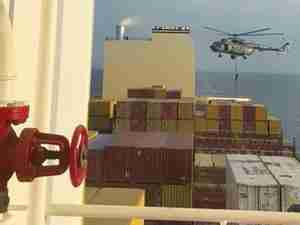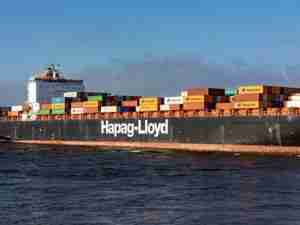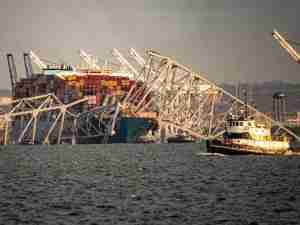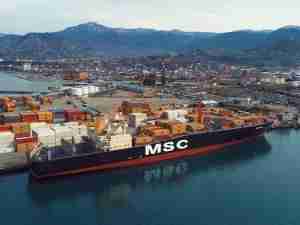Maersk to go for market share after profits beat forecasts
By: Reuters | Aug 13 2015 at 09:19 AM | Liner Shipping
COPENHAGEN - A.P. Moller-Maersk plans to take action to defend and potentially expand its leading position in container shipping, sending a signal to rivals that it will become a more aggressive player in the market.
The oil to shipping group’s results on Thursday showed that container shipping division Maersk Line, the company’s biggest business, gained market share in the second quarter. In the first quarter, it had lost share when analysts said it did not engage in a price war.
“We want Maersk Line to grow at least with the market to defend its market-leading position. It is a signal to the industry that we aim to keep our position as industry leader,” Chief Executive Nils Andersen told reporters.
In the past, Maersk Line has always sought to maintain its market share of around 15 percent but now is looking to expand it, capitalising on its low costs.
Frans Hoyer, analyst at Jyske Markets said: “It’s a new and very strong signal to competitors.”
Maersk Line controls around one-fifth of all containers transported on the world’s busiest routes between Asia and Northern Europe. It was not hit as hard as competitors by record low spot freight rates for transporting containers from Asia to Europe in the second quarter.
This was because the shipping group was able to reduce its unit costs by 13.1 percent, benefiting from lower fuel prices and a weaker US dollar.
“At the end of the day some players have a lower unit costs than others,” analyst Stig Frederiksen from Nordea Markets said, referring to Maersk. He said that enabled Maersk Line to deliver return on invested capital (ROIC) of 10.1 percent, a result he said no others were even close to reaching.
In the second quarter, Maersk Line’s core profit margin was more than 5 percentage points ahead of its peers, which it has delivered every quarter since the fourth quarter of 2012.
The container shipping industry has a reputation for competitive price cutting. In the first quarter, analysts said Maersk had stepped back from a price war on the Far East to Europe route and this led to its market share loss.
Maersk Line’s competitors include family-owned Mediterranean Shipping Company from Switzerland, French family-controlled CMA CGM, Hapag-Lloyd from Germany, Evergreen from Taiwan, Cosco Shipping and CSCL , both from China.
On China, CEO Andersen said the country’s decision to devalue the currency this week was good news for the group because it would benefit Chinese exporters shipping goods around the world.
By controlling around 15 percent of the global market for container transport, Maersk Line is seen as a bellwether for global trade. Roughly 90 percent of the world’s goods are carried by sea with over 70 percent in containers.
The group revised its expectations for global demand for sea-borne container transportation to increase by 2-4 percent from previously by 3-5 percent.
The International Monetary Fund (IMF) expects global growth to be 3.3 percent in 2015 and 3.8 percent next year.
The company also announced plans on Thursday for a $1 billion share buy-back, which helped to send its shares up more than 8 percent.
Group net profit halved to $1.1 billion in the quarter, but the decline was not as bad as forecast thanks to an improvement in the oil business and a stronger than expected result from Maersk Line.
The group kept its full-year outlook of underlying net profit of around $4 billion. It lifted financial targets for Maersk Line to a return on invested capital of between 8.5 percent and 12 percent from a previous 8.5 percent.
Two other divisions in the conglomerate, Maersk Oil and Maersk Drilling also both delivered results above expectations, mostly due to lower than expected operating costs.









